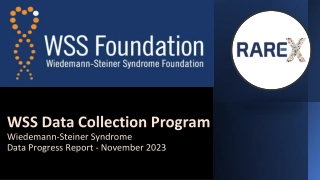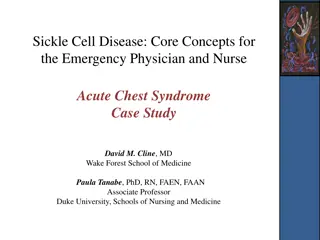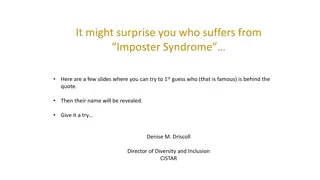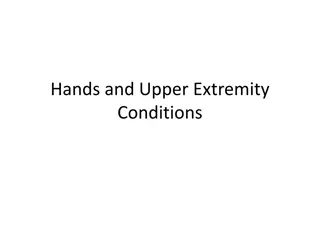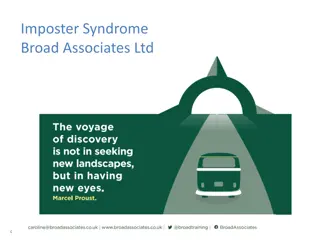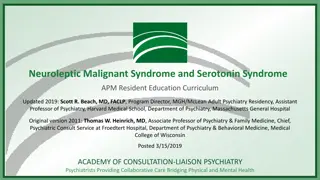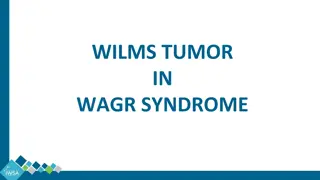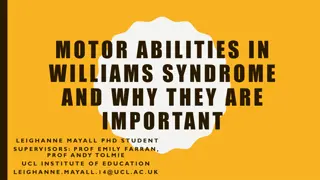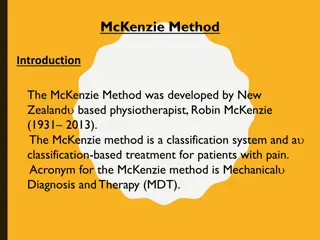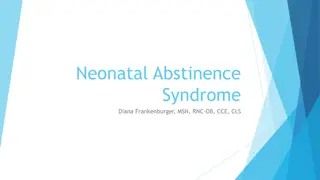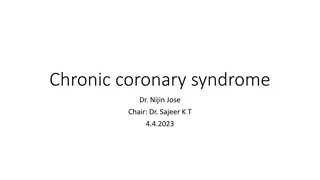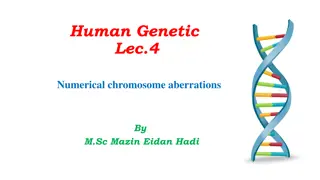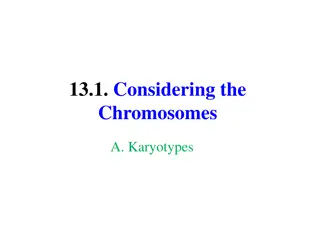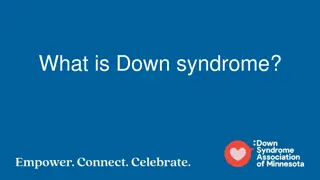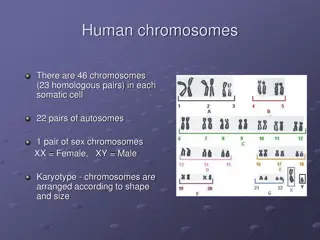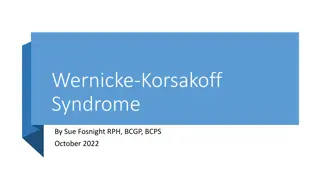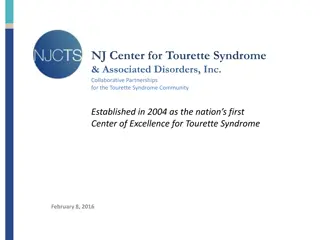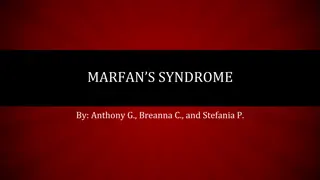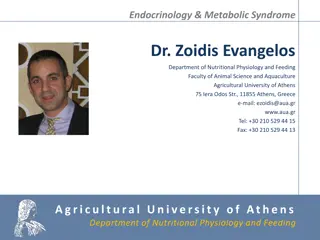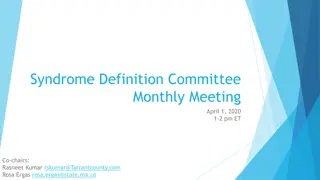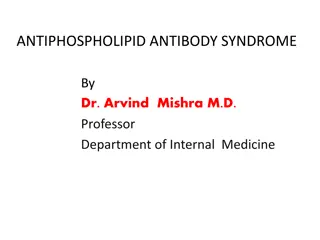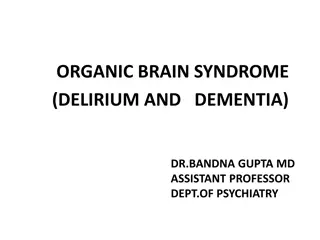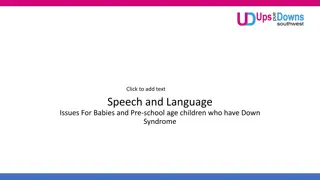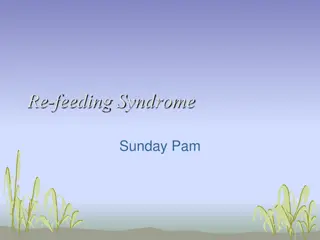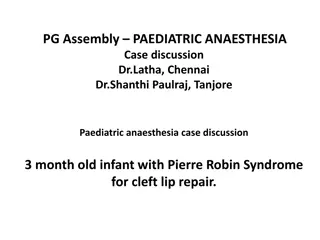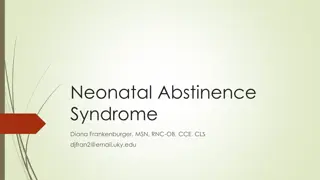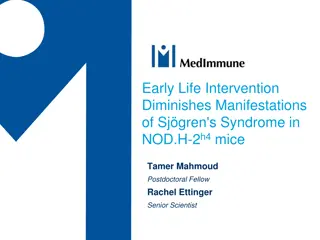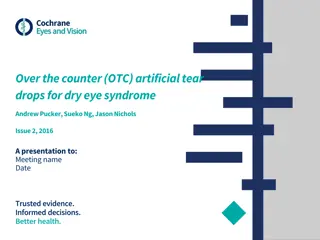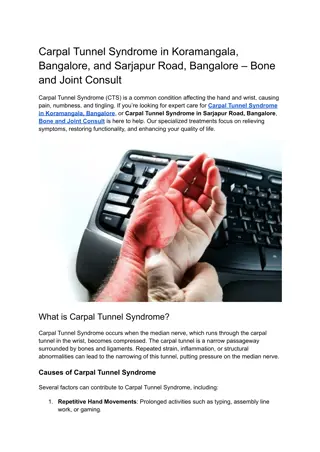Understanding Angelman Syndrome - Enhancing Lives Through Awareness
Angelman syndrome is a rare genetic condition impacting physical milestones and learning abilities. It affects around 1 in 15,000 individuals globally, with symptoms including speech difficulties, disrupted sleep, and seizures. Though there is no cure, increased awareness and research provide hope f
3 views • 20 slides
❤[PDF]⚡ Zee Zee Does It Anyway!: A Story about down Syndrome and Determination
\"COPY LINK HERE ; https:\/\/uyahsegoro.blogspot.com\/?book=B0BGNN7QZ6\n\n[READ DOWNLOAD] Zee Zee Does It Anyway!: A Story about down Syndrome and Determination | Zee Zee Does It Anyway is a Mom’ Choice Awards® Gold Recipient! PLUSReaders' Favorite gave this book a 5-star review!Have you e
1 views • 2 slides
Wiedemann-Steiner Syndrome Data Analysis and Progress Report - November 2023
This report provides insights into the enrollment, survey completion, KMT2A mutation types, reported issues, completion rates of relevant surveys, and symptoms in individuals diagnosed with Wiedemann-Steiner Syndrome. With a global perspective, the data highlights various domains of concern, offerin
1 views • 36 slides
Understanding Wolfram Syndrome: Symptoms and Implications
Wolfram Syndrome, also known as DIDMOAD, is a rare genetic disorder affecting about 1 in 160,000-770,000 people worldwide. It is characterized by the presence of Diabetes Insipidus, Diabetes Mellitus, Optic Atrophy, and Deafness. The primary genetic mutation in the WFS1 gene leads to various symptom
0 views • 22 slides
Managing Acute Chest Syndrome in Sickle Cell Disease
A case study of a 31-year-old male with sickle cell disease presenting in the emergency department with a pain crisis. The patient has a history of avascular necrosis, priapism, NSTEMI, cholecystectomy, and previous acute chest syndrome. Explore the patient's symptoms, past medical history, and reco
7 views • 19 slides
Famous Quotes on Imposter Syndrome - Can You Guess the Authors?
Discover famous quotes on imposter syndrome, try to guess the authors behind them, and learn how even well-known figures like Albert Einstein and Sonia Sotomayor have experienced feelings of inadequacy and self-doubt. Explore the prevalence of imposter syndrome and share your own experiences to crea
1 views • 7 slides
Overview of Hands and Upper Extremity Conditions
This informative content covers various hand and upper extremity conditions including nerve innervation, deformities, splints, and syndromes such as carpal tunnel syndrome and cubital tunnel syndrome. It discusses key nerves like the ulnar, median, and radial, their functions, associated deformities
1 views • 40 slides
Managing Imposter Syndrome: Techniques and Impact
Explore the various aspects of Imposter Syndrome, including symptoms, impact, and management techniques. Understand how attributing successes, negative self-talk, and feelings of fraudulence can affect one's perception of ability and self-worth. Learn strategies such as identifying feelings, reframi
0 views • 13 slides
Neuroleptic Malignant Syndrome and Serotonin Syndrome Overview
This educational material provides an in-depth understanding of Neuroleptic Malignant Syndrome (NMS) and Serotonin Syndrome (SS) including their background, pathophysiology, clinical characteristics, differential diagnosis, risk factors, and treatment approaches. It also explores the historical back
3 views • 53 slides
Understanding Wilms Tumor in WAGR Syndrome
WAGR syndrome is a rare genetic condition associated with Wilms Tumor, aniridia, and developmental delays. Wilms Tumor is a form of kidney cancer mostly affecting children and is linked to genetic disorders like WAGR syndrome. The risk of Wilms Tumor is higher in children with WAGR syndrome, with po
1 views • 14 slides
Motor Abilities in Williams Syndrome and Their Importance
Motor abilities play a crucial role in the developmental journey of individuals with Williams Syndrome. From simple reflex movements to fine and gross motor skills, these abilities impact daily living, academic achievements, and overall cognitive and physical growth. Research on motor skills in both
0 views • 20 slides
Understanding Karyotypes and Chromosomal Abnormalities
Karyotypes are photographic inventories of an individual's chromosomes, helping determine genetic sex and detect abnormalities. Common chromosomal conditions like Down syndrome, Klinefelter's syndrome, and Turner's syndrome are discussed, along with the impact of abnormal sex chromosomes on characte
0 views • 10 slides
Understanding the McKenzie Method for Pain Management
The McKenzie Method, developed by physiotherapist Robin McKenzie, is a classification-based system for treating pain. It involves assessment, treatment, and prevention steps, with an emphasis on centralizing symptoms and promoting pain reduction. The method categorizes pain into three syndromes - Po
2 views • 23 slides
Overcoming Imposter Syndrome: How to Outwit Your Inner Voice
Discover how to outsmart your inner critic and tackle imposter syndrome effectively. Learn about the common features of imposter syndrome and ways to take action to be braver and build integrity. Challenge perfectionism, self-doubt, and limiting beliefs to shape your own success story.
0 views • 4 slides
Understanding Neonatal Abstinence Syndrome (NAS) and Opioid Crisis Impact
Neonatal Abstinence Syndrome (NAS) is a condition where infants experience withdrawal symptoms from exposure to drugs in utero, with a significant impact seen in regions like southeastern Kentucky due to the opioid crisis. This syndrome manifests through various short and long-term effects, necessit
0 views • 30 slides
Understanding Chronic Coronary Syndrome: Causes, Symptoms, and Management
Chronic coronary syndrome involves a dynamic process of atherosclerotic plaque accumulation and functional alterations in coronary circulation. It includes various clinical scenarios such as stable angina, asymptomatic ischemia, prior myocardial infarction, and more. The condition can be modified by
0 views • 131 slides
Interactive Learning Strategies for Classroom Engagement
Engage students in interactive learning activities such as Rally Robin, Timed Pair Share, Rally Coach, and Quiz-Quiz-Trade to promote communication, collaboration, and critical thinking. Use engaging methods like Round Robin and All-write Round Robin for active participation, peer interaction, and s
1 views • 9 slides
Insights on Culture, Taste, and Society by Pierre Bourdieu
Pierre Bourdieu's work in "Distinction: A Social Critique of the Judgement of Taste" delves into the intricacies of cultural practices and societal classifications of taste. He explores how lifestyles become sign systems qualified by social distinctions, influenced by habitus and symbolic capital. B
0 views • 16 slides
Understanding Numerical Chromosome Aberrations in Humans
Numerical chromosome aberrations involve the gain or loss of whole chromosomes, impacting the genome size and potentially leading to genetic mutations. Nondisjunction, where chromosomes fail to separate properly during cell division, can result in aneuploidy - the presence of an extra or missing chr
0 views • 18 slides
Understanding Chromosomal Abnormalities and Syndromes
Human cells have 22 pairs of autosomes and one pair of sex chromosomes, totaling 46. Karyotypes help diagnose chromosomal abnormalities by aligning chromosomes in size order. Nondisjunction during meiosis can lead to abnormal chromosome numbers in gametes. Disorders like Down Syndrome, XYY Syndrome,
0 views • 30 slides
Understanding Down Syndrome: Causes, Effects, and Characteristics
Down syndrome, also known as Trisomy 21, is a genetic condition caused by the presence of an extra 21st chromosome. Discovered by Dr. John Langdon Down in 1866, this condition affects individuals in various ways, influencing their development and abilities. People with Down syndrome may learn skills
0 views • 10 slides
Understanding Chromosomal Disorders and Syndromes in Humans
Human chromosomes play a crucial role in determining genetic traits and health conditions. An extra copy of chromosome 21 leads to Down syndrome, while conditions like Klinefelter's syndrome, Turner's syndrome, Trisomy 13, 18, and 23 have distinct symptoms and implications. Trisomies result from abn
0 views • 20 slides
Understanding Down Syndrome: Types, Characteristics, and Impacts
Down syndrome is a genetic condition caused by an extra chromosome, typically chromosome 21. This leads to physical and cognitive challenges, with individuals exhibiting unique abilities. The syndrome presents with distinctive physical features, such as flattened face, almond-shaped eyes, and poor m
2 views • 14 slides
Understanding Wernicke-Korsakoff Syndrome: Overview and Clinical Considerations
Wernicke-Korsakoff Syndrome (WKS) comprises Wernicke's Encephalopathy (WE) and Korsakoff Syndrome. WE presents with altered mental status, ocular signs, and ataxia, while Korsakoff Syndrome manifests as amnesia and confabulations. Untreated WE can progress to Korsakoff Syndrome in about 80% of cases
0 views • 52 slides
Understanding Tourette Syndrome: Facts and Implications
Tourette Syndrome (TS) is a neurobiological disorder characterized by uncontrollable vocal and physical tics. Despite being underrepresented, it affects around 1 in 100 individuals. TS often goes undiagnosed, leading to misunderstanding and misrepresentation. The NJ Center for Tourette Syndrome prov
0 views • 13 slides
Understanding Marfan Syndrome: Causes, Symptoms, and Effects
Marfan Syndrome is a genetic disorder affecting connective tissue, leading to various physical manifestations such as long limbs, heart and eye issues, and more. This article explores the history, inheritance pattern, symptoms, effects, and diagnosis of Marfan Syndrome, shedding light on the challen
1 views • 13 slides
Dr. Zoidis Evangelos: Endocrinology & Metabolic Syndrome Expert at Agricultural University of Athens
Dr. Zoidis Evangelos is a distinguished professional in the field of endocrinology and metabolic syndrome, currently serving as a Lecturer at the Agricultural University of Athens. With a background in biochemistry and extensive research experience, his work focuses on nutritional physiology, molecu
0 views • 12 slides
Syndrome Definition Committee Monthly Meeting Overview
The Syndrome Definition Committee's monthly meeting will take place on April 1, 2020, from 1-2 pm ET. The agenda includes an overview of the previous call, discussions on new CCDD categories, CSTE Guidance Document updates, suicide-related syndrome definitions, ESSENCE coding tips, and more. Various
0 views • 10 slides
Understanding Antiphospholipid Antibody Syndrome and Its Clinical Implications
Antiphospholipid antibody syndrome is an acquired disorder characterized by recurrent thrombosis or pregnancy complications due to autoantibodies against phospholipid-binding plasma proteins. Learn about its classification, epidemiology, pathogenesis, and diagnostic antibodies. Discover how lupus an
0 views • 35 slides
Understanding Organic Brain Syndrome & Delirium
Overview of organic brain syndrome and delirium, including definitions, clinical features, and management. Delirium, a common psychiatric syndrome, affects consciousness, cognition, and perception, leading to increased morbidity and mortality. Recognize core symptoms, such as disturbances in conscio
0 views • 37 slides
Understanding Speech and Language Development in Children with Down Syndrome
Speech and language play a crucial role in the social, emotional, and cognitive development of children, particularly those with Down Syndrome. Early intervention is key for successful language acquisition, as evidence suggests that the brain is most receptive to learning between birth and 6-8 years
1 views • 13 slides
Explore English Lesson "An Invention for Robin" in Class Six
Engage in the English lesson "An Invention for Robin" for Class Six students, focusing on reading, writing, comprehension, and letter writing skills. The lesson involves exploring a letter from Aunt Amina, Robin's excitement, and his subsequent communication with his family. Students will practice v
0 views • 13 slides
Understanding Re-feeding Syndrome: Metabolic Alterations and Pathophysiology
Re-feeding Syndrome (RS) is a critical condition characterized by severe metabolic changes during the repletion of underweight or malnourished individuals. The syndrome's hallmark is severe hypophosphatemia, leading to multisystem complications. This summary delves into the biochemical basis of RS,
0 views • 25 slides
Paediatric Anaesthesia Case Discussion: Challenges of Anaesthetizing an Infant with Pierre Robin Syndrome
Pierre Robin Syndrome (PRS) presents challenges in paediatric anaesthesia, especially in infants undergoing procedures like cleft lip repair. PRS is characterized by micrognathia, glossoptosis, and respiratory distress. Other syndromes associated with cleft lip include Treacher Collins syndrome, Gol
0 views • 56 slides
Understanding Imposter Syndrome: Causes, Effects, and Overcoming Strategies
Imposter Syndrome is characterized by feelings of inadequacy despite evidence of success, chronic self-doubt, and fear of being exposed as a fraud. It affects individuals' work performance, leads to avoidance of additional duties, assigns success to external factors, and can result in burnout. Howev
0 views • 10 slides
Understanding Neonatal Abstinence Syndrome (NAS) and Its Impact
Neonatal Abstinence Syndrome (NAS) is a condition where infants experience withdrawal symptoms from substances they were exposed to before birth. This syndrome is a consequence of the opioid crisis, leading to prolonged hospitalizations and long-term effects. By defining NAS, listing common behavior
0 views • 29 slides
Early Life Intervention Diminishes Sjögren's Syndrome Manifestations in Mice
Early life intervention has been shown to reduce the clinical manifestations of Sjögren's syndrome in NOD.H-2h4 mice, which mimic key features of the human autoimmune disease. The syndrome is characterized by salivary gland autoantibodies, ectopic lymphoid follicles, reduced salivary and tear flow,
0 views • 19 slides
Early Childhood Education Practices at Pierre Laclede Junior Career Academy Preschool
Explore the innovative teaching practices at Pierre Laclede Junior Career Academy Preschool, focusing on nurturing initiative, self-regulation, and attachment in young children. Discover the importance of environment, family partnerships, and intentional experiences for holistic child development. E
1 views • 11 slides
Effectiveness of Over-the-Counter Artificial Tear Drops for Dry Eye Syndrome
Over-the-counter artificial tear drops are commonly used as a first-line treatment for dry eye syndrome. This study evaluated the effectiveness and toxicity of OTC artificial tears compared to other classes of OTC artificial tears, placebo, or no treatment. Results showed no significant difference i
0 views • 13 slides
Carpal Tunnel Syndrome in Koramangala, Bangalore, and Sarjapur Road, Bangalore – Bone and Joint Consult
If you\u2019re struggling with Carpal Tunnel Syndrome in Koramangala, Bangalore, or Carpal Tunnel Syndrome in Sarjapur Road, Bangalore, Bone and Joint Consult is your trusted partner for effective diagnosis and treatment.\nCall us now or book an appo
0 views • 3 slides

![❤[PDF]⚡ Zee Zee Does It Anyway!: A Story about down Syndrome and Determination](/thumb/20462/pdf-zee-zee-does-it-anyway-a-story-about-down-syndrome-and-determination.jpg)
